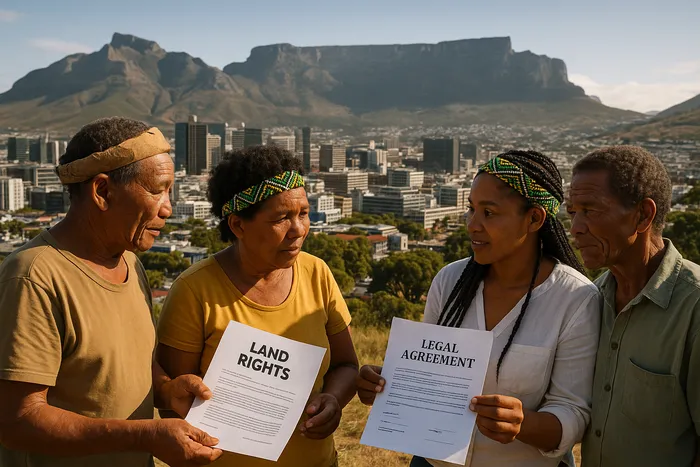Cape Town secures legal victory against Khoi-San land invasions in Mitchell’s Plain

The legal battle revolves around Khoi-San representative Johannes van Rooyen, who had previously told the South African Human Rights Commission that the community would be repossessing land.
Image: Ai
The City of Cape Town has won the right to prevent members of the Khoi-San community from unlawfully occupying vacant land in Mitchell’s Plain.
The legal battle revolves around Khoi-San representative Johannes van Rooyen, who had previously told the South African Human Rights Commission that the community would be repossessing land.
The judge noted that Van Rooyen said he had a mandate to secure land for his people.
This led the City to seek an anti-land-invasion interdict against Van Rooyen and others he represented.
An anti-land-intrusion interdict is a court order that allows a landowner to stop unlawful occupation before it occurs.
It differs from an eviction, which is used to remove people already illegally occupying land, often under the Prevention of Illegal Eviction from and Unlawful Occupation of Land Act (PIE).
While acknowledging the Khoi-San’s situation, the judge emphasised that any continued occupation could disrupt the City’s plans to provide housing and other essential services.
“[Van Rooyen] seems to proceed from the assumption that these erven belong to the Khoi-San people by virtue of an alleged historical dispossession,” said the judge
The judge added that “I appreciate the respondents' plight; however, if the respondents are allowed to continue repossessing land as they do, they are likely to slow down, or even halt, the orderly planning and development of housing and the provision of other services that the City is constitutionally mandated to provide”.
Subsequent moves by the Khoi-San to rebuild structures and call on others to occupy nearby plots prompted multiple urgent court applications and Metro Police intervention.
In an earlier High Court judgement, the City’s actions were wrongly found to amount to an eviction, and anti-land-intrusion interdicts were deemed impermissible, with the court saying such orders could authorise arbitrary evictions without oversight and were too broad, targeting unnamed people.
The City appealed to the Supreme Court of Appeal, which allowed it to return to the High Court.
This time, the court confirmed that anti-land-intrusion interdicts are lawful.
It found that the City had a clear right to protect its property, a reasonable apprehension of unlawful occupation, and no alternative remedies that could provide the same protection.
The ruling allows the City to display the court order visibly on the affected properties in English and Afrikaans. It is not an eviction and does not permit the demolition of occupied structures except under the PIE Act.
The decision ensures that the City can prevent land invasions proactively while fulfilling its constitutional duties to provide housing and essential services, without resorting to eviction.
IOL Business
Get your news on the go. Download the latest IOL App for Android and IOS now.